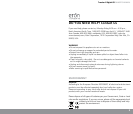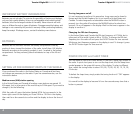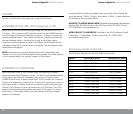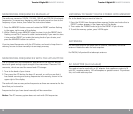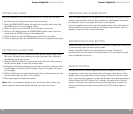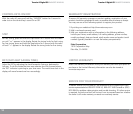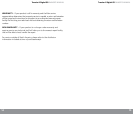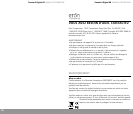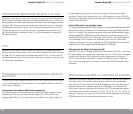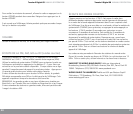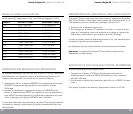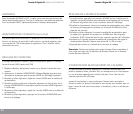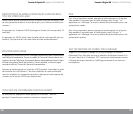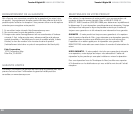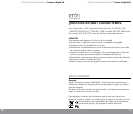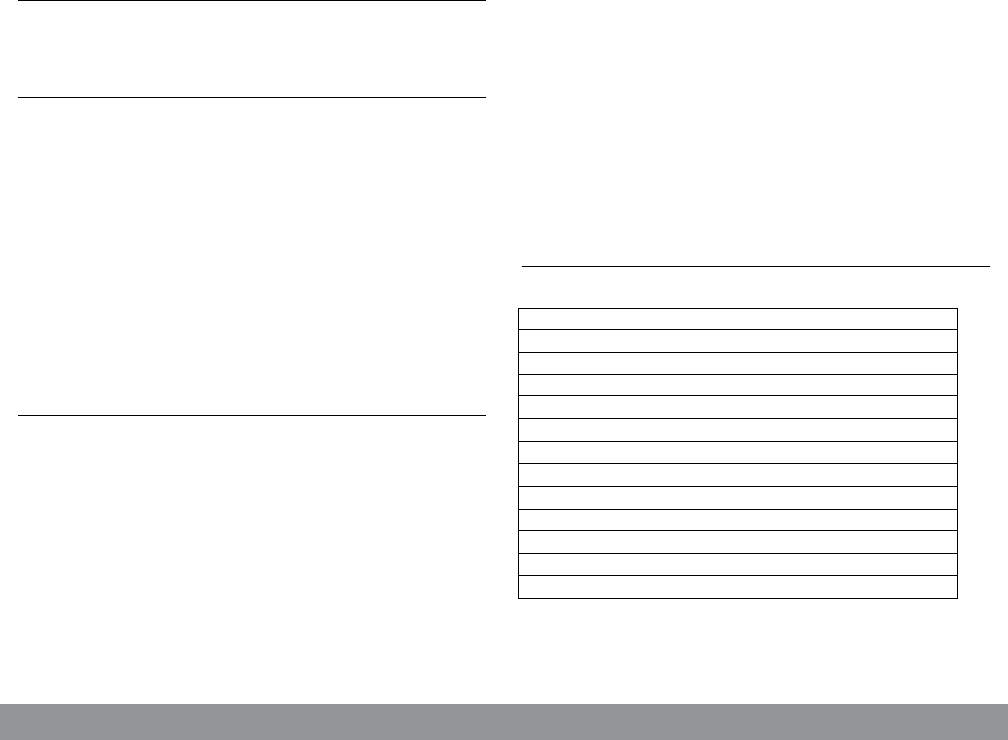
6
Traveler II Digital G8 OWNER’S MANUAL
7
Traveler II Digital G8 OWNER’S MANUAL
VOLUME
Use the volume knob, on the right side, to adjust the volume.
LISTENING TO FM, AM, LW (Longwave) or SW
Select the FM, AM, LW or SW band by pressing the FM, AM/LW, or \/ SW
/\ buttons . AM is shown as MW (medium wave). Use the TUNING knob to
tune the radio to the desired frequency, or press \/ /\ buttons to search for
the next available station. Each station will play for 5s before searching for
the next available station. Press any key to stay on your favor station.
If you are using an earphone to listen to FM-stereo, the FM-stereo symbol
will appear under FM on the left side of the display. This only appears when
earphones are plugged in.
NOTE: Longwave is not used for broadcasting in the United States and
Canada. It is used in the United Kingdom and in Europe. If you hear stations
in the Longwave band, they may be ‘images’ of AM stations.
LISTENING TO SHORTWAVE
Each short press of the \/ SW /\ buttons takes the radio into a different
shortwave meter band (frequency range).. The band number appears briey
in the upper right corner of the display. After you’re in a band, use the
TUNING knob to tune, or press and hold the \/ SW /\ buttons for 2 seconds
to tune or to engage the 5 second scan. To stop the 5 second scan, press on
any buttons again or slightly rotate the tuning knob. Notice that when you
use the \/ SW /\ buttons to scan, the radio scans in 5 KHz steps. This is OK,
because shortwave broadcast stations are exactly 5 KHz apart. The tuning
knob tunes in 1 KHz steps. While using these buttons the band number
appears in the display.
Shortwave allows listening to stations from around the world. During the
day, listen above 13 MHz. At night, listen below 13 MHz. To learn more use
the Internet or the two books below:
PASSPORT TO WORLD BAND RADIO Published by International Broadcasting
Services (IBS); IBS North America, Box 300, Penn’s Park PA 18943. Phone:
(215) 598-9018. www.passband.com.
WORLD RADIO TV HANDBOOK Published in the USA by Watson-Guptill
Publications, 770 Broadway, 7th Floor, New York, NY 10003-9595.
www.watsonguptill.com.
Shortwave bands of the G8:
The G8 shows frequencies in KHz, but MHz is also shown.
BAND # KILOHERTZ (KHz) MEGAHERTZ (MHz)
90 m 3150- 3450 KHz 3.15-3.450 MHz
75 m 3850- 4050 KHz 3.85-4.05 MHz
60 m 4700- 5100 KHz 4.70-5.1 MHz
49 m 5700- 6300 KHz 5.7-6.3 MHz
41 m 7080-7600 KHz 7.08-7.60 MHz
31 m 9200-10000 KHz 9.2-10 MHz
25 m 11450-12200 KHz 11.45-12.2 MHz
22 m 13500-13900 KHz 13.5-13.9 MHz
19 m 15000-15900 KHz 15.00-15.9 MHz
16 m 17450-17900 KHz 17.45-17.9 MHz
15 m 18850-19100 KHz 18.85-19.1 MHz
13 m 21430-21950 KHz 21.43-21.95 MHz




